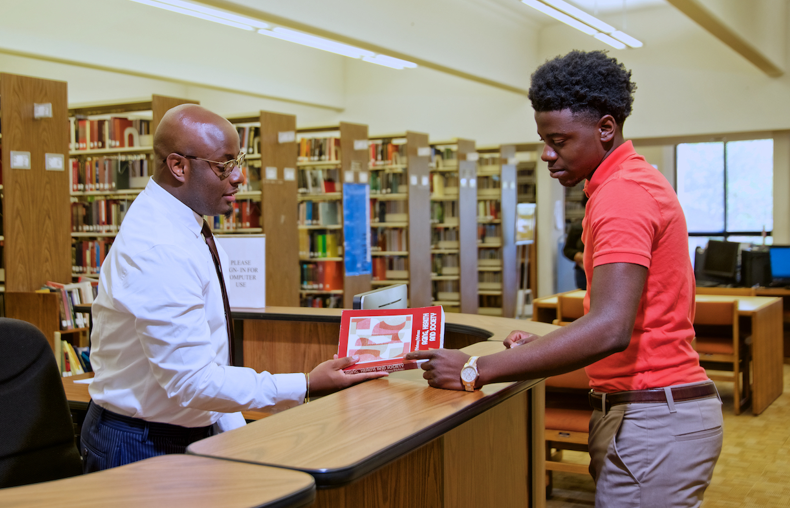Navigating the competitive landscape of NowCollege 1v1 debates can be both thrilling and intimidating. Whether you’re a seasoned debater or just stepping into this exhilarating arena, understanding the nuances of this format is crucial for success. The stakes are high, and every point matters when you face off against your opponent in real-time. With proper preparation and strategic thinking, you can sharpen your skills and enhance your performance.
In this guide, we’ll explore essential tips and strategies designed to elevate your debating game. From mastering effective communication to utilizing evidence with finesse, each aspect plays a vital role in achieving victory in NowCollege 1v1 competitions. Let’s dive into the art of debate—your journey towards becoming a formidable contender starts here!
Understanding the NowCollege 1v1 Format
The NowCollege 1v1 format centers on direct engagement between two opponents. Each participant presents their arguments and rebuttals in a structured manner, fostering a dynamic exchange of ideas.
Debaters typically have prepared statements followed by opportunities to counter each other’s points. This back-and-forth creates an environment where quick thinking is essential.
Time management plays a critical role as well. Each side must articulate their thoughts clearly within designated timeframes, ensuring every second counts toward making impactful arguments.
Understanding the rules and flow of this format empowers debaters to navigate discussions effectively. Grasping these fundamentals sets the stage for strategic planning and confident delivery during your debate rounds.
Importance of Preparation and Time Management
Preparation is the cornerstone of success in the NowCollege 1v1 format. It’s not just about knowing your material; it’s about understanding the nuances of debate dynamics. Each round brings unique challenges, and being well-prepared can set you apart from your opponent.
Time management plays a crucial role as well. Balancing your preparation time with practice rounds ensures that you’re sharp when it’s game time. Create a schedule that allocates specific hours for research, rehearsals, and mock debates.
Utilizing tools like timers during practice helps simulate real conditions. This builds confidence in managing speaking times effectively while allowing room for rebuttals and interactions.
Strategic preparation also means anticipating potential counterarguments and questions before they arise. Keep an adaptable mindset to stay on your toes throughout the debate process.

Tips for Effective Communication and Engagement with Your Opponent
Effective communication lies at the heart of a successful NowCollege 1v1 debate. Listen actively to your opponent’s points. This shows respect and helps you understand their stance better.
Use clear, concise language when presenting your arguments. Avoid jargon that might confuse both you and your audience. The goal is clarity.
Engagement goes beyond just speaking; it involves interacting with your opponent’s ideas. Ask questions to clarify their position or challenge assumptions gently but firmly.
Non-verbal cues matter too. Maintain eye contact to show confidence and interest in the discussion. Your body language should complement what you’re saying—stay open and approachable.
Practice empathy by acknowledging valid points made by your opponent, even if you disagree overall. Building rapport can make for a more constructive dialogue and enhance the quality of the debate experience for both parties involved.
Strategies for Analyzing and Responding to Debate Topics
Analyzing and responding to debate topics requires a strategic approach. Start with careful reading of the prompt. Identify key terms and phrases that can guide your direction.
Next, brainstorm angles of argumentation. Consider both sides, even if you’ll only argue one perspective. This not only strengthens your position but prepares you for counterarguments.
When crafting a response, prioritize clarity and conciseness. Use simple language to express complex ideas effectively. Avoid jargon unless necessary; it may alienate listeners.
Utilize frameworks like pros and cons or cause and effect to organize thoughts logically. Remember to support each point with relevant evidence or examples that resonate with your audience.
Practice active listening during the discussion phase as well. This allows you to adapt on-the-fly, tailoring responses based on what your opponent presents without losing track of your own assertions.
Utilizing Evidence and Examples to Strengthen Your Arguments
Evidence is the backbone of any strong argument. When preparing for a NowCollege 1v1 debate, it’s crucial to gather credible sources that support your claims. Whether you’re citing statistics, studies, or expert opinions, make sure they are relevant and up-to-date.
Using real-world examples can illustrate your points vividly. A well-chosen anecdote can resonate with your audience and clarify complex ideas. This strategy not only enhances engagement but also makes your arguments more relatable.
Don’t forget about counter-evidence as well. Anticipating opposing views allows you to preemptively address potential criticisms within your own arguments. By presenting a balanced perspective backed by solid data, you’ll showcase critical thinking skills that judges appreciate.
Remember to cite all sources correctly during the debate. Proper attribution boosts credibility and demonstrates thorough preparation—both essential components of success in the NowCollege 1v1.lol format.
Proper Use of Rebuttals and Cross-Examination to Counter Your Opponent’s Points
Rebuttals and cross-examination are your secret weapons in a NowCollege 1v1 debate. They allow you to challenge your opponent effectively, highlighting weaknesses in their arguments.
Start with clarity. When addressing points made by your opponent, be direct. Focus on one argument at a time to avoid confusion.
During cross-examination, ask pointed questions that require specific answers. This strategy can expose gaps in their reasoning or force them into difficult positions.
Use evidence strategically during rebuttals. Cite facts or examples that directly counter the claims presented by your opponent. A well-placed statistic can shift the momentum of the debate.
Maintain composure throughout this process; staying calm helps reinforce your credibility. Your goal is not just to dismantle their points but also to present yourself as an informed and respectful debater who values constructive dialogue over mere confrontation.
Maintaining a Professional Attitude and Sportsmanship throughout the Debate
Maintaining a professional attitude is crucial during any NowCollege 1v1 debate. This sets the tone for a respectful exchange of ideas. Approach each round with an open mind, ready to listen as much as you speak.
Sportsmanship goes hand in hand with professionalism. Acknowledge your opponent’s strengths and valid points. Doing so demonstrates maturity and respect for their perspective.
Avoid personal attacks or confrontational language, even if tensions rise. Stay focused on the topic at hand rather than making it personal. Remember that everyone is there to learn and grow.
Moreover, manage your emotions effectively. Nervousness can lead to frustration; stay calm and composed throughout the debate process. Your demeanor will not only reflect positively on you but also encourage healthy dialogue.
Maintain eye contact and use positive body language when engaging with your opponent or audience members. This builds rapport and fosters a collaborative atmosphere while keeping discussions constructive.
Preparing for Potential
Preparing for potential challenges in the NowCollege 1v1 debate is crucial. Anticipating your opponent’s arguments can give you a significant advantage.
Start by researching common topics and trends. Understand different perspectives that may arise during the debate. This knowledge allows you to develop well-rounded responses.
Practice makes perfect. Engage in mock debates with peers to simulate real-life scenarios. This helps sharpen your skills and boosts confidence.
Consider creating a strategy guide tailored to possible counterarguments. Knowing how to pivot effectively will keep you agile during discussions.
Stay adaptable as well; new ideas may surface mid-debate that require quick thinking on your feet. Embrace flexibility while staying true to your core message.
Remember that preparation isn’t just about facts or figures—it’s also about mindset. Arriving mentally ready enhances focus and clarity throughout the exchange.
Conclusion
Mastering the NowCollege 1v1 format requires a blend of skills. Each debate is an opportunity to showcase your knowledge and persuasive abilities.
Practicing effective communication can make a significant difference. Engaging with your opponent creates a dynamic atmosphere that enhances the experience for both participants.
Being prepared is essential. Research, practice, and hone your arguments well before stepping into the debate arena.
Remember to listen actively during exchanges. This will help you craft stronger rebuttals and respond thoughtfully to challenges presented by your opponent.
Maintain professionalism throughout each interaction. Displaying good sportsmanship fosters respect and enriches the overall environment of competition in academic settings like NowCollege 1v1 debates.
Frequently Asked Questions (FAQs)
Frequently Asked Questions (FAQs)
What is the NowCollege 1v1 format?
The NowCollege 1v1 format is a structured debate competition where two participants engage in a direct exchange of ideas on specific topics. Each side presents arguments, counters claims, and strives to persuade an audience or judge.
How can I prepare effectively for a NowCollege 1v1 debate?
Preparation involves researching your topic thoroughly, understanding both sides of the argument, and practicing your delivery. Time management is crucial—allocate time for outlining your points and rehearsing responses to likely counterarguments.
What strategies can enhance communication during the debate?
Effective communication relies on clarity, confidence, and active listening. Make eye contact with your opponent and use body language that conveys engagement. Ask clarifying questions if needed to ensure you fully understand their stance.
How do I analyze a debate topic successfully?
Start by breaking down the topic into its core components. Identify key issues at play and consider different perspectives. Use frameworks like pros vs. cons or cause-and-effect analyses to structure your thoughts logically.
Should I always rely on evidence when presenting my arguments?
Yes! Evidence lends credibility to your claims. Utilize statistics, expert opinions, historical examples, or case studies relevant to the discussion point you’re making.
What role do rebuttals play in the NowCollege 1v1 debates?
Rebuttals are essential for addressing opposing viewpoints directly. They allow you to dismantle an opponent’s argument while reinforcing yours simultaneously—make them concise but impactful.
Is sportsmanship important during debates?
Absolutely! Maintaining professionalism reflects well on you as a debater and fosters respect between opponents. Good sportsmanship encourages constructive dialogue rather than adversarial conflict.
Can I expect unexpected challenges during my preparation?
Yes! Unforeseen variables may arise—be it last-minute changes in topics or new information surfacing about existing subjects—stay adaptable in both preparation and execution stages.
